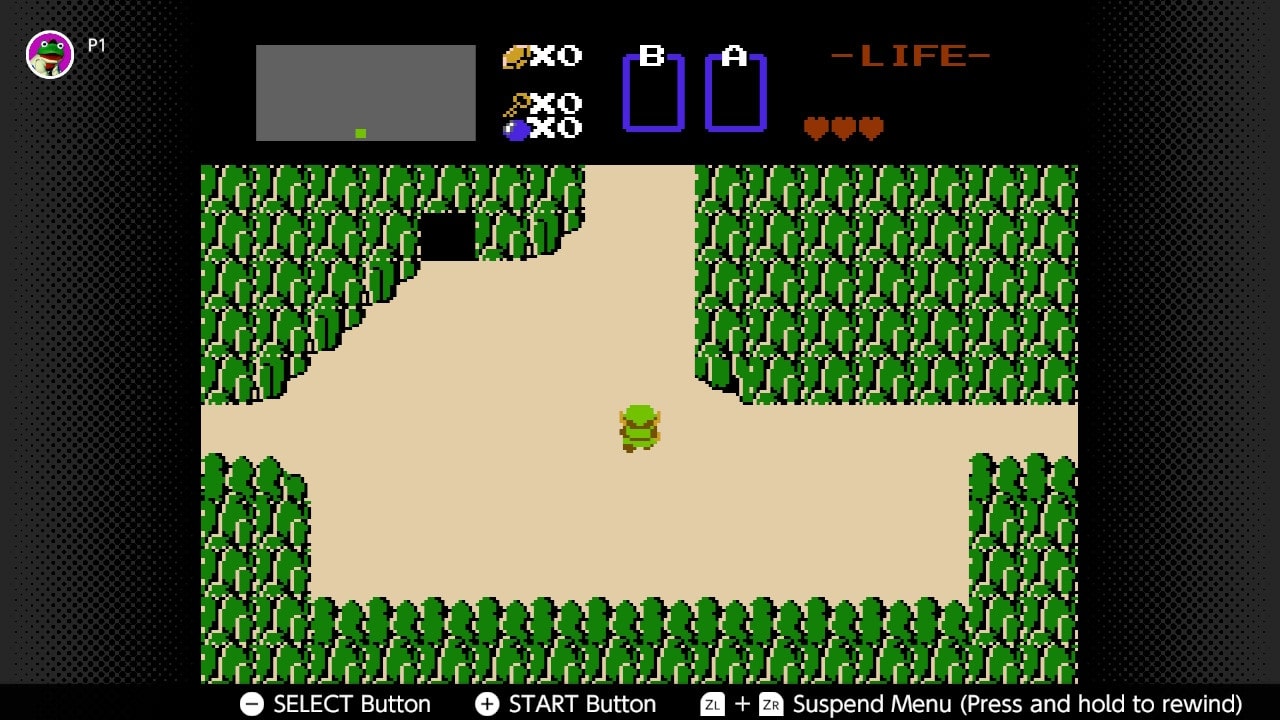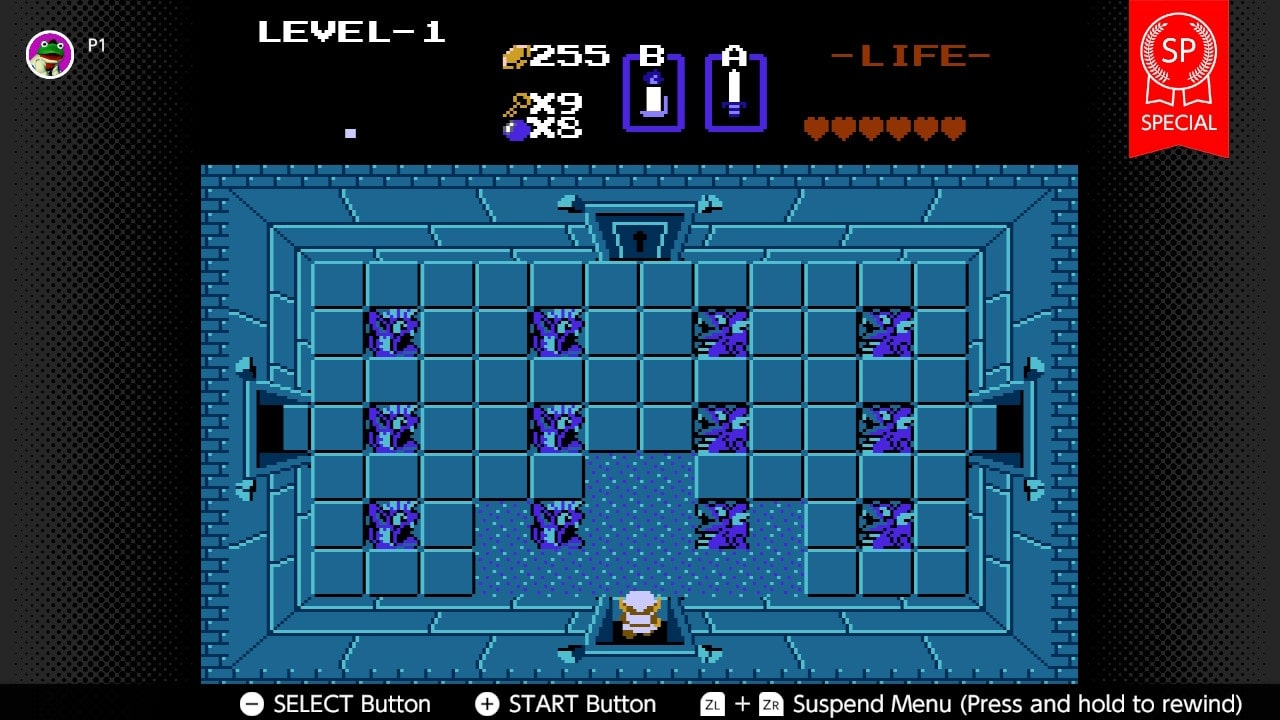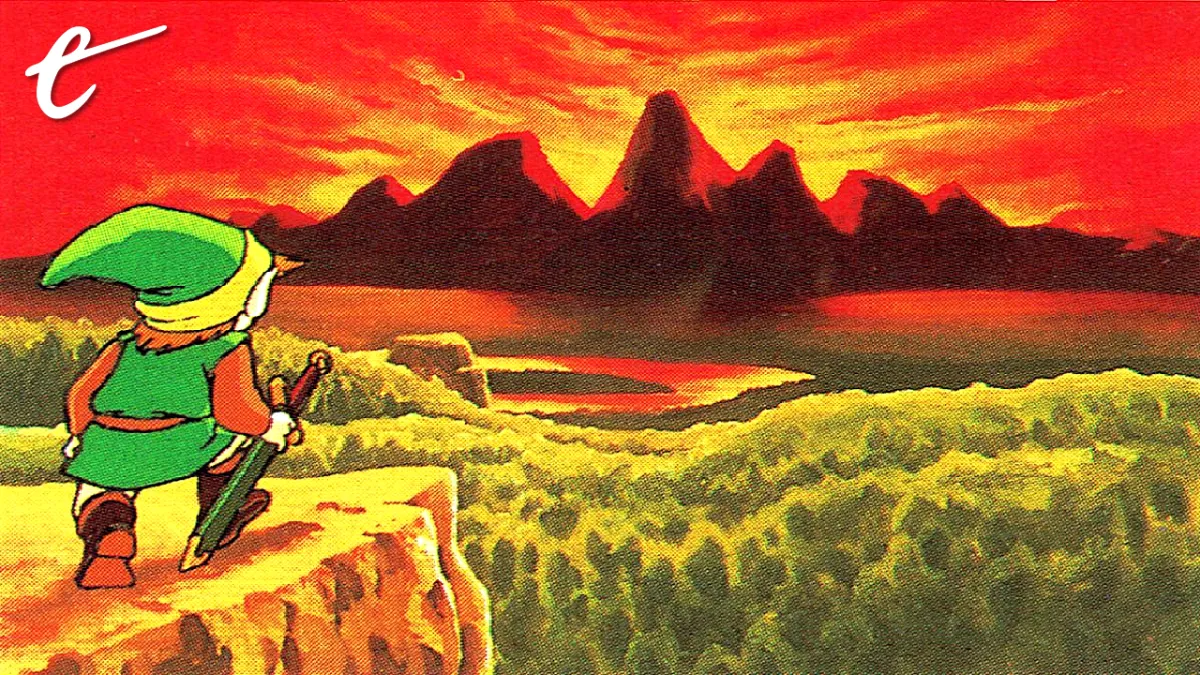The Legend of Zelda has been my favorite video game franchise for pretty much my whole life. From the first time I played A Link to the Past on my SNES as a kid, to the hundreds of hours I’ve put into Breath of the Wild, the adventures of Link and Zelda have been a constant source of joy and wonder for my past three decades of gaming.
With Tears of the Kingdom finally upon us, I decided to embark on a journey over the past year to replay as many Zelda games as I could and see if this crash course through gaming history could help me glean any new insight into a series that has meant so much to me. I’ll be relaying my thoughts through a set of short features highlighting one thing that stood out to me from each game.
Today’s game — 1987’s The Legend of Zelda for the NES.
The Legend of Zelda for the NES is many things. It’s famously a distillation of the sense of adventure and excitement that creator Shigeru Miyamoto would experience in his youth while exploring the vast stretches of nature behind his childhood home. It’s a zig from the zag that was Super Mario Bros.; while Nintendo’s platformer had Mario generally moving from left to right while defeating enemies, avoiding obstacles, and rescuing the princess, Zelda presented its world from a top-down view. But most of all, the original Legend of Zelda was a proclamation of intent from its creators to its audience – even though it’s dangerous to go alone, we trust you nonetheless.
For me, that genuine sense of trust in the player is what made the original game such a monumental success at the time, as well as what’s helped keep the creative fires of the series burning in the decades since then.

Hyrule is littered with nooks and crannies that house clues to help you on your journey. You need to soak in this advice from the various elders you find hidden in caves underneath the dangers of Hyrule. In this sense, it’s the kind of experience that’s perfectly paired with a pen and paper by your side to not only remember these arcane clues, but also sketch out a map of the small-but-dense 8×16 grid that is your playground. As a fan of any game that inspires me to jot down my thoughts in a tangible way, I love this about The Legend of Zelda.
From the moment you’re dropped into the very first screen, Zelda empowers you to create your own adventure. Danger, excitement, and intrigue lies at the heart of every screen transition. It’s so easy to take a wrong turn in Hyrule, only to find yourself getting your ass kicked by skittering Tektites, reanimated Armos, and beefy Lynels. When I replayed the game last year on Switch, I treated my Link as if he existed in a Groundhog Day-esque time loop. I’d wander onto a new screen, get the ever-loving hell beat out of me by a new enemy, and then rewind a few seconds to see if I could survive a bit longer with the accumulated knowledge.
Zelda’s freedom exudes the same kind of trust that we see today in games like Dark Souls, The Witness, Fez, and Hollow Knight. And perhaps most similarly, it’s the trust that existed in every single second of 2022’s Tunic, which presented its dioramic world as a clear and loving homage to Link’s original adventure, right down to the assistance given to you outside the world of the game in its manual, strategy guides, and conversations you have with other excited players.
That last point is crucial for folks revisiting The Legend of Zelda for the first time many decades later. The game was almost built with the idea of playground gossip in mind, so don’t be afraid to use a guide if you sense frustration creeping in. As impressive as this game is, it was still created during the infancy of the medium, and the wonky translation can make some of the hints indecipherable.

Of course, this initial core thesis of trust would ebb and flow as the series evolved. Overly chatty companions like Ocarina of Time’s Navi and Skyward Sword’s Fi felt like progenitors of what we saw last year with God of War Ragnarok’s crew butting in to solve any puzzle that might be giving you even the slightest bit of friction.
But for every one of these, there’s a moment in Zelda’s history that calls back clearly to the trust of this original game. It’s still present in the moments you’re sailing towards the horizon in Wind Waker, charting a path through the open-ended nature of A Link Between Worlds’ dungeon order, and the sheer freedom found in Breath of the Wild the moment you leave the Great Plateau.
It’s mind-boggling to consider how, nearly 40 years ago, Nintendo built a foundation in The Legend of Zelda that would exist to this very day. Breath of the Wild’s DNA is composed of the same verbs and same vibes that were present at the start, and the same could be said for Super Mario Odyssey and Metroid Dread. Nintendo has always been a creator that keeps one eye on its past while charting its course forward, and that becomes abundantly clear when you take the time to build trust with The Legend of Zelda.
Check out other entries in this ongoing Zelda series below.
- Zelda II: The Adventure of Link Is a Bold and Important Failure
- In A Link to the Past, One Moment Made Zelda Feel Truly Magical
- Link’s Awakening Shows There’s More to Zelda Than Saving the World
- Ocarina of Time’s Forest Temple Is Zelda Dungeon Perfection
- Majora’s Mask Isn’t Just a Video Game
- Wind Waker’s Greatness Proves That Epona Kinda Sucks
- The Best Dungeon in Twilight Princess Finds Love in a Hopeless Game






Published: Apr 25, 2023 11:00 am